Scottish election 2021: Meeting the Scots who don't vote
- Published
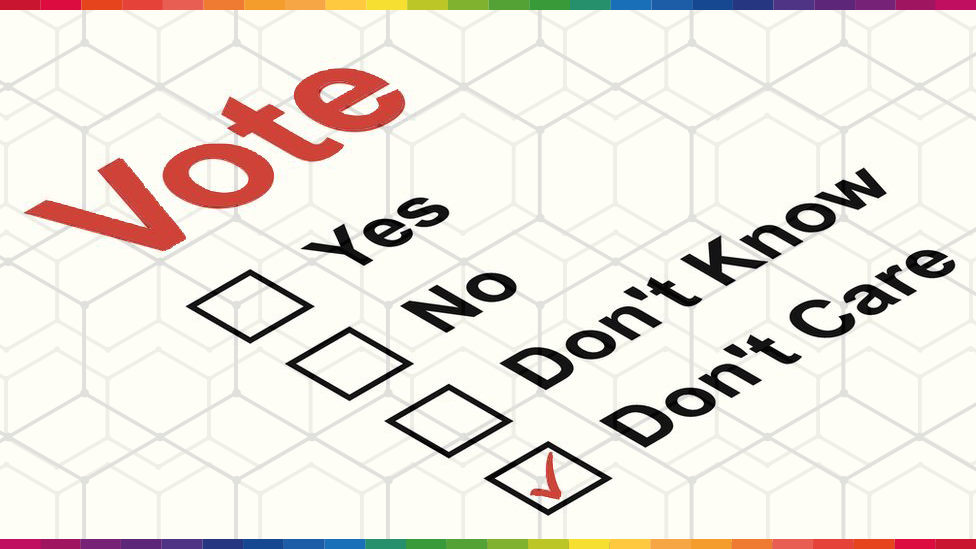
Politicians insist that the Scottish Parliament election on 6 May could be one of the most important in the county's history. But on average, almost half of the electorate don't actually vote in these polls.
Who are the Scots who don't take part in the democratic process, and what's holding them back?

"The Holyrood voting system means Scottish Parliament election results are always on a knife-edge. That's hard-wired into the system.
"So every vote really does matter - and the outcome has never been more important."
That was Nicola Sturgeon's summary of the Holyrood election campaign as she launched the SNP manifesto. A crucial contest which could shape the very future of a nation.
But try canvassing potential voters in the street, and you often get a very different impression.
"I won't be voting this year, I feel as if it's a bit of a waste of time."
"I'm not interested in politics - whoever gets in, nothing happens."
They're billed as big moments in Scotland's political life, but the average turnout for the five Holyrood contests since 1999 has been just 53%.
So who are the "silent Scots" who don't use their vote in Scottish Parliament elections?

SIGN UP FOR SCOTLAND ALERTS: Get extra updates on BBC election coverage

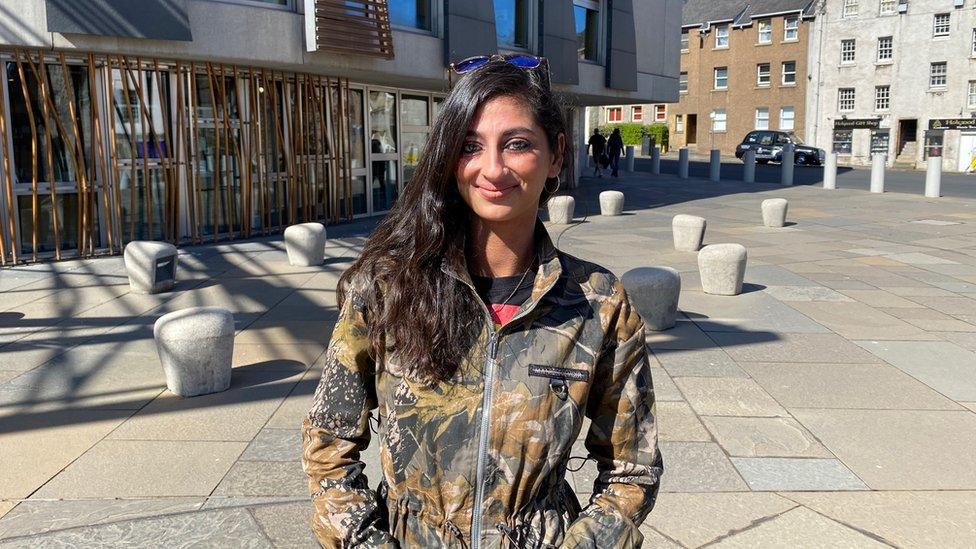
Harleen's mum volunteers to count votes on polling day, but she won't be taking part herself
Harleen Nottay is a Scottish Punjabi born and raised in Edinburgh who has had jobs ranging from modelling to corporate sales. She voted in the 2014 independence referendum - but hasn't entered a polling booth since.
She said: "I have a real mistrust in the system as a whole. What frustrates me is that in the run-up to an election there will be a lot of promises made and a lot of numbers thrown around, but when whatever party does get into power a lot of u-turns happen.
"I don't really like the system and the way the MSPs speak to one another. I would rather abstain and not have my vote count for anything, rather than have it count for something I don't believe in."
This general suspicion about politics is familiar - generally only journalists provide competition for politicians at the foot of the table when the public are polled about trust.
Harleen added: "If there were more reputable, more trustworthy people sitting at the top of the pyramid, maybe it would entice me to want to engage a bit more.
"I think politics attracts the wrong kind of people - if you're a politician your goal should be to serve your community and the society you live within, whereas I think there are a lot of self-serving politicians out there."
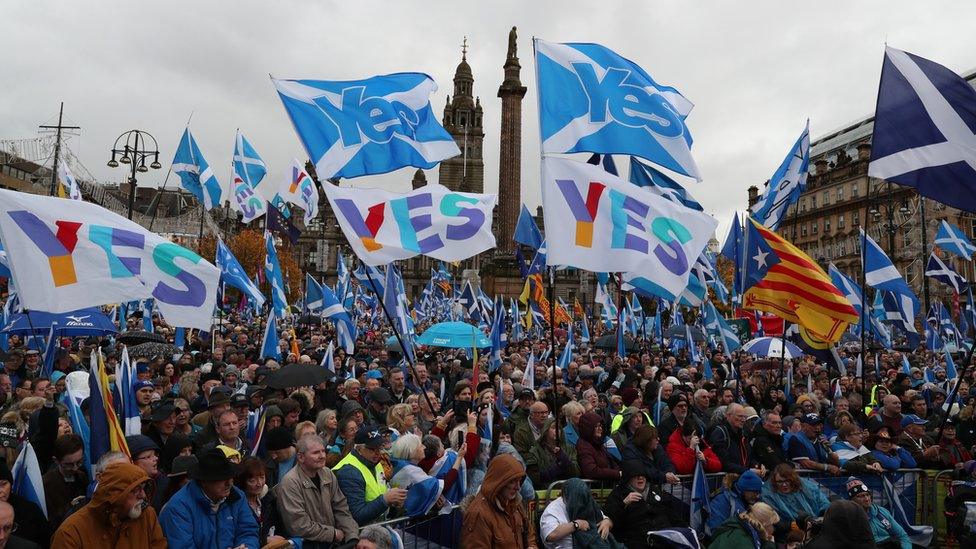
Turnout hit record levels for the 2014 referendum - but fell away again despite the independence debate continuing
Harleen's story - of voting in the 2014 referendum but not since - is also familiar, because that was the high-water mark of turnout in Scotland, at 84.6%.
For a moment, there was a sense it could be the beginning of a new age of political engagement. But the figures soon dropped off again, with the 2016 Holyrood poll attracting 55.6% of eligible voters.
Ailsa Henderson, a professor of political science at Edinburgh University, says there were two things behind this.
First, lot of voters fell off the electoral register after the referendum due to a change in the way people are signed up.
And second, the conditions of the 2014 vote have never really been replicated.
She said: "Binary referendums focus minds in a way that elections don't. And particularly in a referendum where the polling was far closer than people thought it would be - everything we know about turnout is that people turn out to vote in close elections.
"It was also tied to what was going on within the campaign, the debate about what kind of future people want to see for the future, in both directions.
"Those larger debates about who we want to be are possible in an election campaign but they're harder - because you have people pulling in different directions and want to talk about other policy areas, and take credit for certain policies or attribute blame for failures, and its much simpler in a referendum where you don't have that happening."

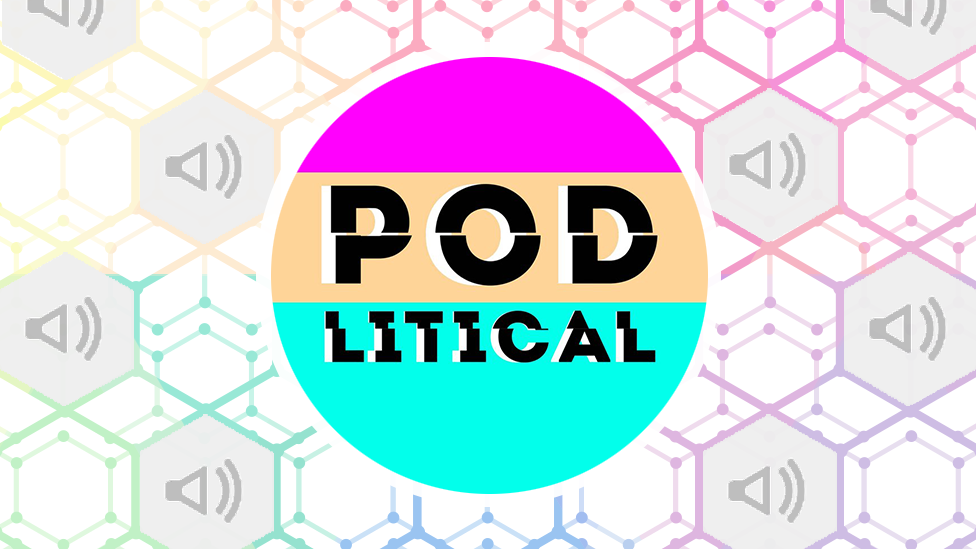
Listen to more on this in a special episode of Podlitical, BBC Scotland's politics podcast

So who are the non-voters?
Demographically, they tend to be younger or middle-aged people, and those on lower incomes or who have less free time - ironically those who are also more likely to interact with the state in some way, and thus might have more to gain or lose from choosing who governs.
If this sounds like a fairly wide group of people, it's because the non-voting population is enormous.
The second Holyrood election, in 2003, had a turnout of just 49%. The 2012 council elections were down at 39.6%, although the real bottom of the barrel were European Parliament elections, which attracted 28.5% of the electorate in 2009 and 24.7% in 1999.
However, Scots are much more likely to vote in Westminster elections, with 68% of them turning out for the general election in 2019 - the highest of any nation in the UK.
When you put it all together, there can't be many people in Scotland who have actually turned out to vote on every single occasion they were entitled to. Even as a politics graduate who works as a political correspondent, I can't say I have.
But despite this, there is still a kind of taboo about admitting having not voted. Many of those we approached for a podcast on the topic refused to talk about it, or said they would only speak anonymously.
And when people did agree to open up, it wasn't because they lack strong feelings about politics, or were apathetic or disengaged - quite the opposite, in fact.
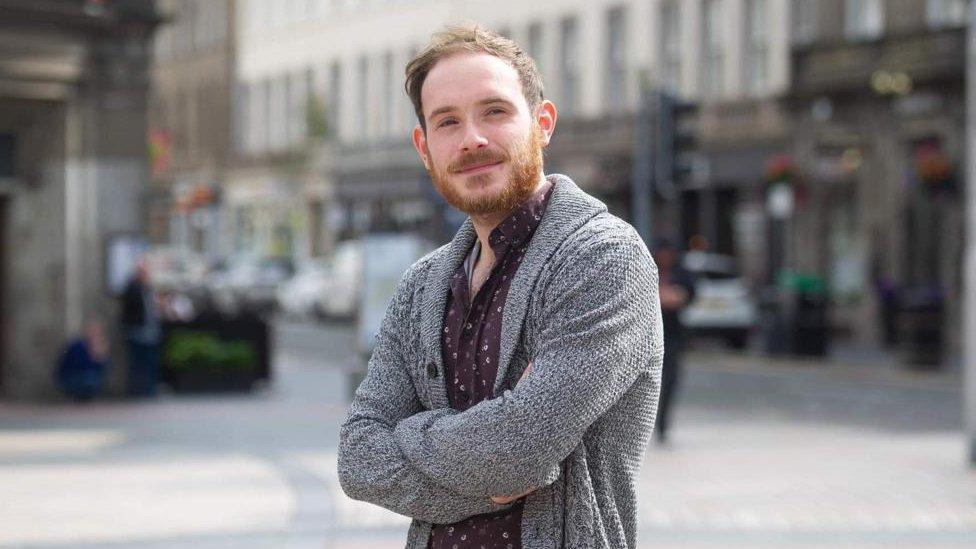
Scott was a member of the Scottish Youth Parliament - but has never actually voted in an election
Scott Redmond, a Scottish-Romany poet and comedian who is based in Dundee, didn't even vote in the independence referendum.
He said: "For me personally, coming from a Romany traveller background, every political party has done or said something or another that directly negatively impacts my community. I can't bring myself to vote for a party that is going to do that, even if I agree with every other thing they said.
"I was a member of the Scottish Youth Parliament, and since then I've always been interested. I have gone on marches, I watch Question Time, I like to engage, its just I've always been put off from actually voting.
"There are plenty of people in my community who do vote, there are plenty of us who don't, but I personally have never heard an argument that was convincing to me."
Scott's complaint with parties is very focused on their treatment of the Romany community, but this is actually a common complaint you hear from non-voters - that politicians aren't really interested in them, or in making a difference for their local area.
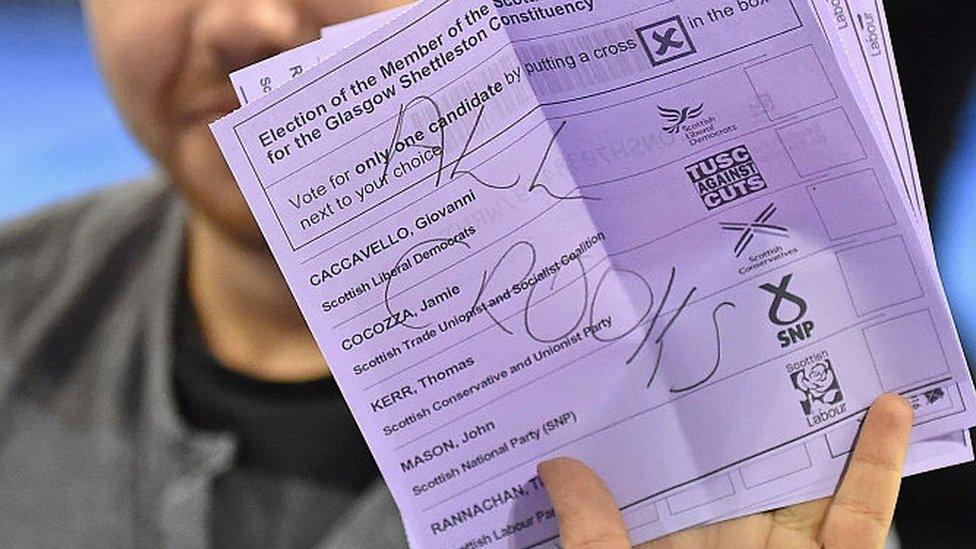
An example of a spoiled ballot from the 2016 Holyrood election
Lewis Akers, a student and community activist from Dunfermline, told BBC Scotland he was "obsessed" with politics - but frequently spoiled his ballot instead of voting.
He said: "Instead of voting for a party I don't believe in, I think its worthwhile going along and making your voice heard that you don't want to vote for anybody.
"A few years ago we were doing a campaign against library closures in Fife, and I didn't believe any of the parties were making enough of a stand against them. So I wrote on my ballot paper, 'stop all library closures'.
"I have voted for parties in the past, but in some elections I just don't think there's someone who represents me, and I don't think you should devalue your voice by supporting someone you don't believe represents you.
"I don't think that holding politicians to account starts or ends at the ballot box. That's just one way to do it - from my own perspective I'm involved in community campaigns and trade unions, I write about politics and talk to people about it all the time.
"A vote as far as I'm concerned is giving someone consent to act on your behalf. If you don't believe they are equipped to represent you I don't understand why you would give them it."

SCOTLAND'S ELECTION: THE BASICS
What's happening? On 6 May, people across Scotland will vote to elect 129 Members of the Scottish Parliament (MSPs). The party that wins the most seats will form the government. Find out more here.
What powers do they have? MSPs pass laws on aspects of life in Scotland such as health, education and transport - and have some powers over tax and welfare benefits.

Why is voting important, anyway?
One reason offered by Prof Henderson was that voting matters because it ensures the legitimacy of the system.
Imagine an election where turnout was 2%. People probably wouldn't accept the result, and the resulting government would have no popular mandate.
So plenty of people turning out to take part in an election doesn't just help to pick a winner that most people agree on, it also engages the idea of "loser's consent" - that we are all playing the same game and accept the rules.
But the people you talk to about not voting often say they don't accept the system as it is. And maybe that's why there's such a taboo in political circles about it - because in a way its rejecting the process altogether.
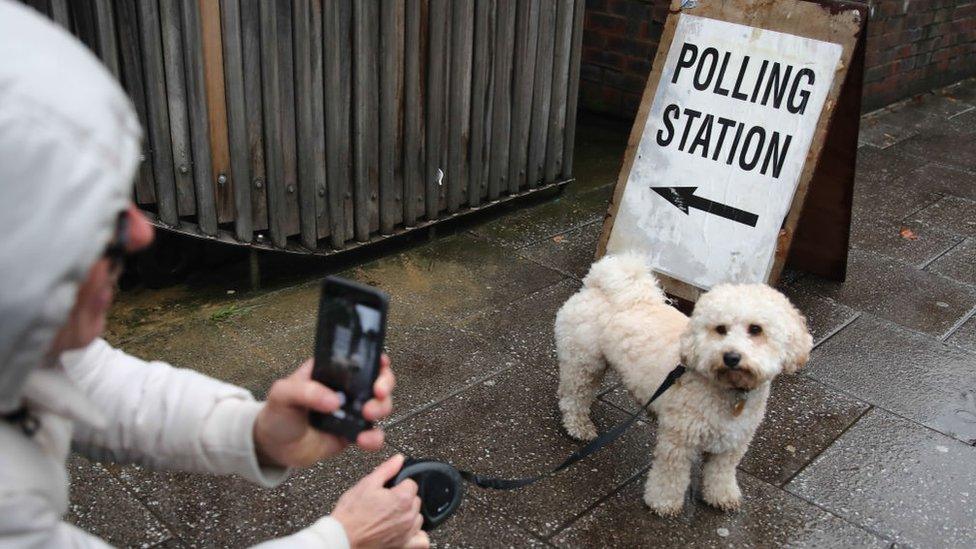
Dogs are popular at polling stations, but do not count towards turnout
What struck me talking to people about this was that while they might say they haven't voted or don't vote, they rarely say they will never vote.
They would like things to change first, from specific policies to the broader sweep of how our politics is conducted.
But you also find that far from being completely turned off from it all, often they are as clued up about politics as anyone who does cast a ballot - in some cases possibly even more so.
One thing about the 2021 election which is new is the recent experience of the Covid-19 lockdown - a clear example to people of the extent of the powers governments can exercise.
Might people be more interested now in choosing who wields that power over them?
"When something like the pandemic does hit us it does make us realise its so important who is at the top, it really does," said Harleen. "That is maybe one point that would make me consider maybe voting - maybe!"

POLICIES: Who should I vote for?
CANDIDATES: Who can I vote for in my area?
PODLITICAL: Updates from the campaign
